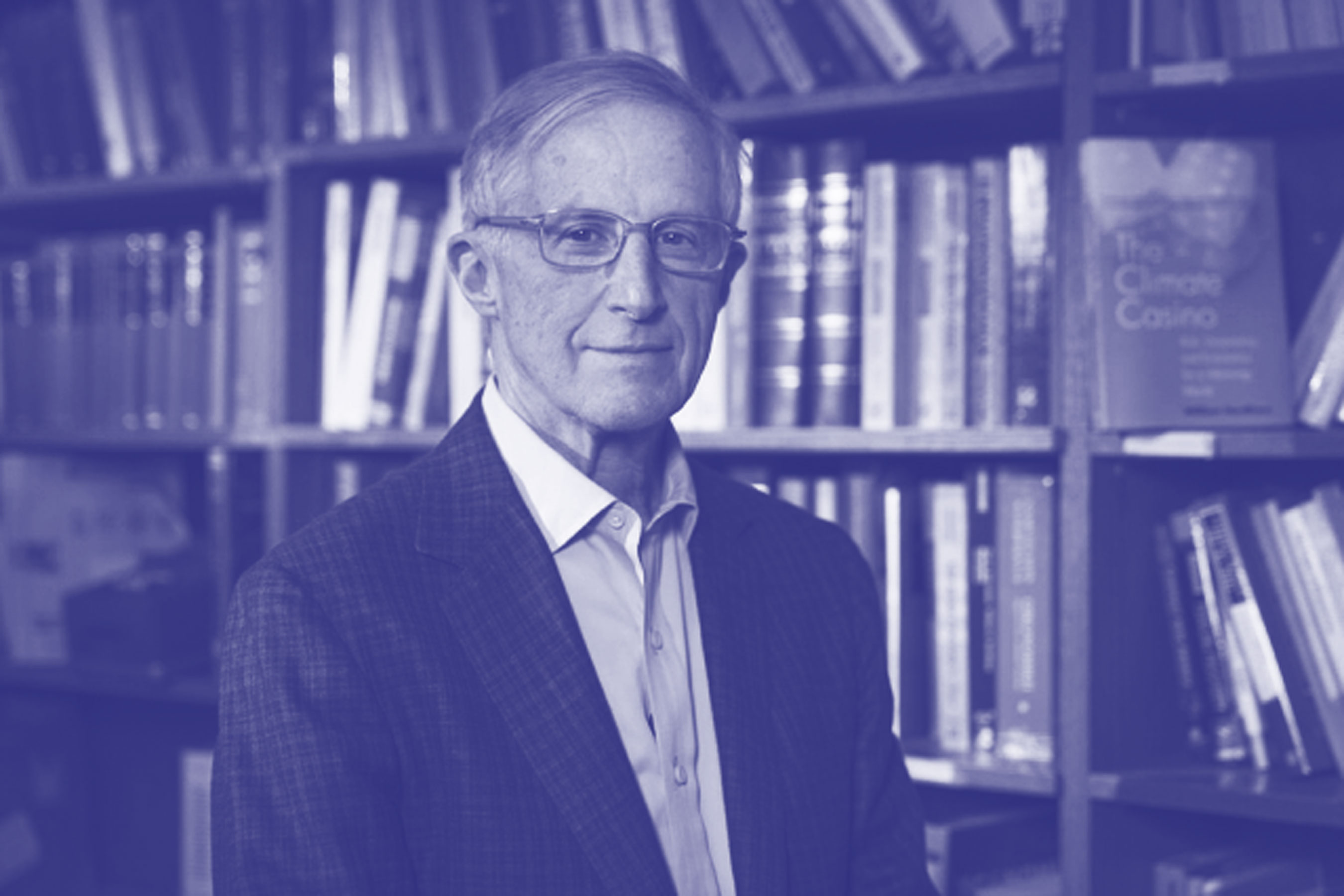
William D. Nordhaus, PhD ’67, a scholar known for his work on the long-term interaction of climate change and the economy, will share the 2018 Nobel Prize in economic sciences with Paul M. Romer of New York University’s Stern School of Business, who also did graduate work at MIT. The Royal Swedish Academy of Sciences announced that the two economists have “significantly broadened the scope of economic analysis by constructing models that explain how the market economy interacts with nature and knowledge.”
In Nordhaus’s case, the academy cited his pioneering development of an “integrated assessment model” representing “the global interplay between the economy and the climate.” Nordhaus has refined multiple iterations of his model. He has also written about climate and economics for a broad audience as the author of several books.
Nordhaus, who is a professor of economics at Yale University, completed his PhD dissertation at MIT under the supervision of Robert M. Solow, himself the 1987 winner of the economics Nobel. Multiple winners of this award, including Peter Diamond, George Akerlof, and Joseph Stiglitz, have also had Solow as their principal advisor in MIT’s graduate program. Additionally, MIT biology professor H. Robert Horvitz ’68, a Nobel laureate in 2002 in the category of Physiology or Medicine, wrote his undergraduate thesis in economics under the direction of Solow.
Nordhaus is the 37th MIT alum to win a Nobel Prize and the 90th winner with a connection to MIT. Five people have won the economics Nobel while serving as members of the MIT faculty; another 11 MIT alumni, including Nordhaus, have won the prize, as have seven former MIT faculty members.
Keep Reading
Most Popular
Large language models can do jaw-dropping things. But nobody knows exactly why.
And that's a problem. Figuring it out is one of the biggest scientific puzzles of our time and a crucial step towards controlling more powerful future models.
The problem with plug-in hybrids? Their drivers.
Plug-in hybrids are often sold as a transition to EVs, but new data from Europe shows we’re still underestimating the emissions they produce.
Google DeepMind’s new generative model makes Super Mario–like games from scratch
Genie learns how to control games by watching hours and hours of video. It could help train next-gen robots too.
How scientists traced a mysterious covid case back to six toilets
When wastewater surveillance turns into a hunt for a single infected individual, the ethics get tricky.
Stay connected
Get the latest updates from
MIT Technology Review
Discover special offers, top stories, upcoming events, and more.